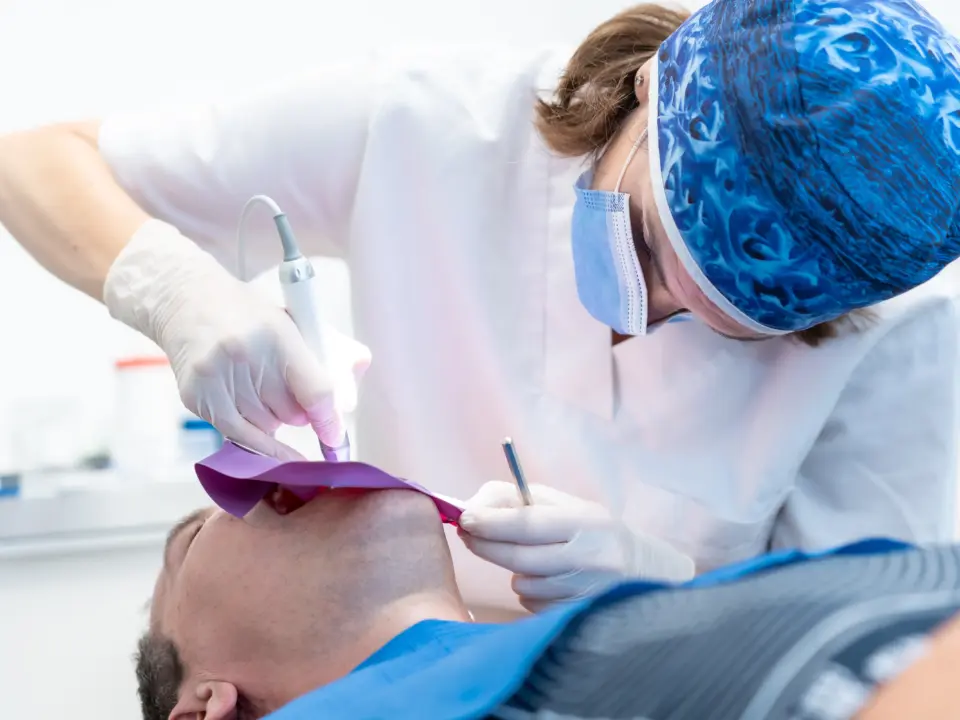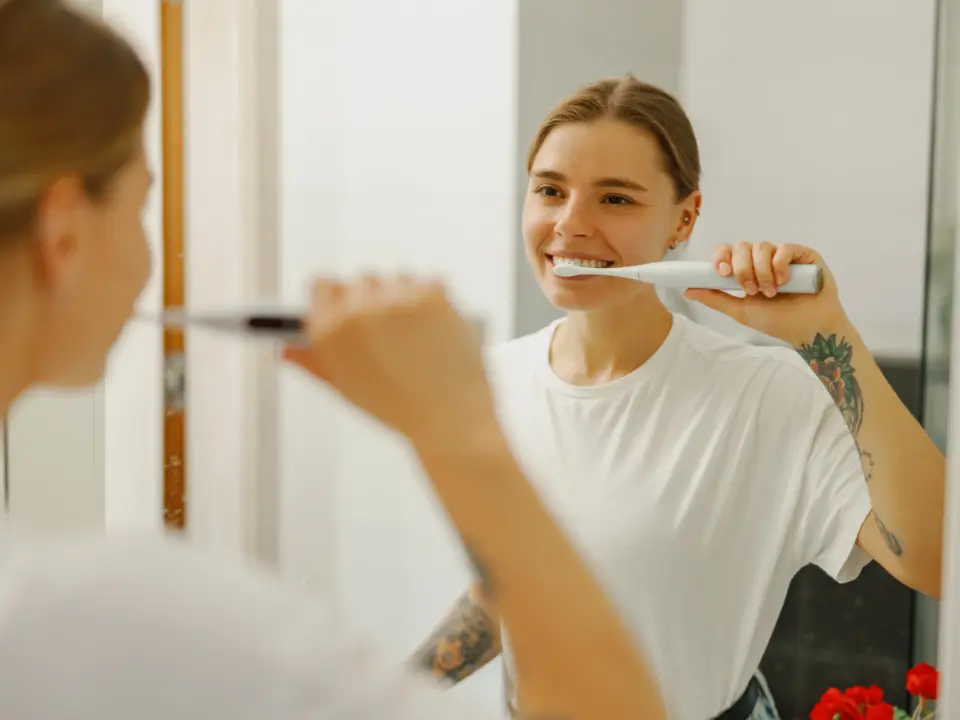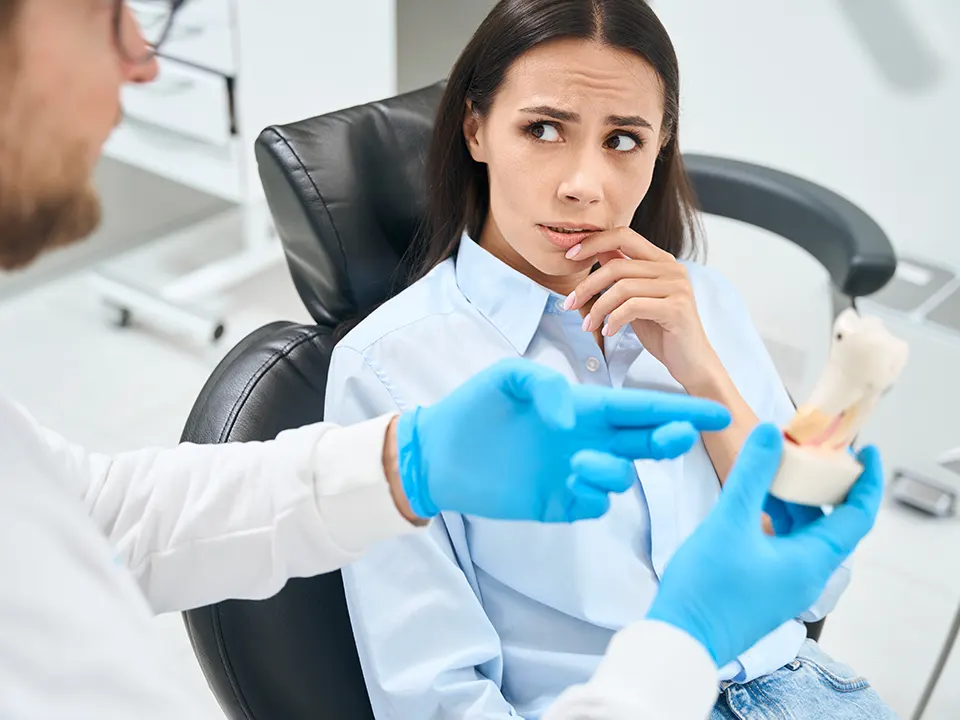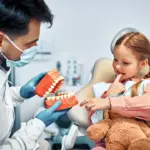
Dental Sealants and How They Help Stop Children’s Cavities
May 23, 2025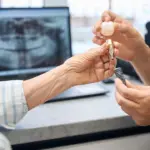
Understanding Tooth Replacement Options: Dental Implants
June 25, 2025When you think about going to the dentist, you probably think about cleanings, fillings, or maybe even braces. But did you know that your dentist is also checking for signs of oral cancer during your visits? Oral cancer screenings might sound intimidating, but they’re actually quick, painless, and incredibly important. No matter your age, routine oral cancer screenings can help detect potential issues early, when they’re easiest to treat. Let’s talk about why these screenings matter, what your dentist looks for, and why catching oral cancer early can make all the difference.
What is Oral Cancer?
Oral cancer includes cancers that occur in the oral cavity, including your lips, tongue, cheeks, floor of the mouth, roof of the mouth, and even your throat. Like other cancers, it happens when abnormal cells grow uncontrollably, forming tumours that can invade and damage healthy tissues.
Oral cancer can be particularly serious because it’s often discovered at later stages. However, regular oral cancer screenings by your dentist can dramatically increase the chances of early detection, improving treatment outcomes significantly.
Early Signs of Oral Cancer
Being aware of the early signs of oral cancer can help you be proactive about your oral health. Some common early signs include:
- Red or white patches inside your mouth or on your lips
- Sores or ulcers that don’t heal within two weeks
- Lumps, bumps, or thickening of the skin or tissues inside your mouth
- Pain, tenderness, or numbness on your lips, tongue, or anywhere in your mouth
- Challenges with chewing, swallowing, or speaking
- Persistent sore throat or feeling like something is stuck in your throat
If you notice any of these symptoms, it’s important to book a visit with your dentist right away. These signs don’t always mean cancer, but they should definitely be checked out by a professional.
Risk Factors for Oral Cancer
While oral cancer can affect anyone, there are certain factors that increase your chances of developing it:
- Tobacco use, including smoking cigarettes, cigars, pipes, or chewing tobacco
- Excessive alcohol consumption
- Human papillomavirus (HPV) infection, specifically HPV type 16
- Prolonged exposure to sunlight, especially affecting the lips
- A history of head and neck cancer or a family history of cancer
Even if none of these apply to you, it’s still important to get regular oral cancer screenings because oral cancer can still develop without any known risk.
What Happens During an Oral Cancer Screening?
A typical oral cancer screening is quick and straightforward. Usually, your dentist performs this screening as part of your regular dental check-up. Here’s what you can expect:
- Visual Examination: Your dentist will carefully look at your lips, tongue, cheeks, gums, the roof of your mouth, and the floor of your mouth for any unusual signs like sores, patches, or discoloration.
- Physical Examination: Your dentist will gently feel around your jaw, neck, and inside your mouth to check for lumps or abnormal tissue.
- Special Tools: Sometimes dentists use special lights or a blue dye to help highlight abnormal areas or potential cancer cells. These tools make it easier to spot changes in your mouth tissues that might not be visible otherwise.
If your dentist finds an abnormal area or something suspicious, they might suggest further testing, like a biopsy. This involves taking a small sample of tissue to look at under a microscope to determine if cancer cells are present.

Importance of Early Detection
Detecting oral cancer early can be life-saving. When oral cancer is found earlier on, the chance of successful treatment increases significantly. Early-stage oral cancer is usually treated successfully with surgery or radiation therapy, often avoiding more aggressive treatments like chemotherapy.
Unfortunately, many cases of oral cancer aren’t found until they’re advanced, mainly because people don’t notice or ignore early symptoms. That’s why routine cancer screenings are so critical. Regular screenings mean your dentist can catch oral cancer in its earliest stages, before it spreads.
Oral Cancer Screenings at Every Age
Oral cancer screenings aren’t just for older adults. Young adults can be at risk too, especially due to HPV infections. Dentists recommend screenings for people of all ages, starting as early as your teenage years. Including oral cancer screenings in your routine dental care from a young age builds good habits and ensures you’re proactive about your health.
How Often Should You Get Screened?
Most dentists generally recommend getting an oral cancer screening at least once a year during your dental appointments. However, if you’re at higher risk (for example, if you smoke or have HPV), your dentist might recommend screenings more frequently.
Tips for Preventing Oral Cancer
While you can’t completely eliminate the risk of oral cancer, there are things you can do to significantly reduce your chances:
- Quit using tobacco products or avoid starting altogether.
- Drink alcohol only in moderation.
- Maintain a healthy diet rich in fruits and vegetables.
- Protect your lips from the sun by using a SPF lip balm.
- Visit your dentist regularly for routine check-ups and screenings.
Take Action for Your Oral Health
Routine oral cancer screenings are a simple yet powerful way to stay ahead of your health. If you haven’t been screened recently, now is a great time to schedule an appointment with your dentist. Staying informed and proactive can make a huge difference in your oral health and overall well-being. Remember, catching potential problems early is always your best bet for effective treatment and recovery.
At Knox Mountain Dentistry, your regular exam includes a simple oral cancer screening. It’s quick, comfortable and focused on keeping you healthy. Book your next visit today.

